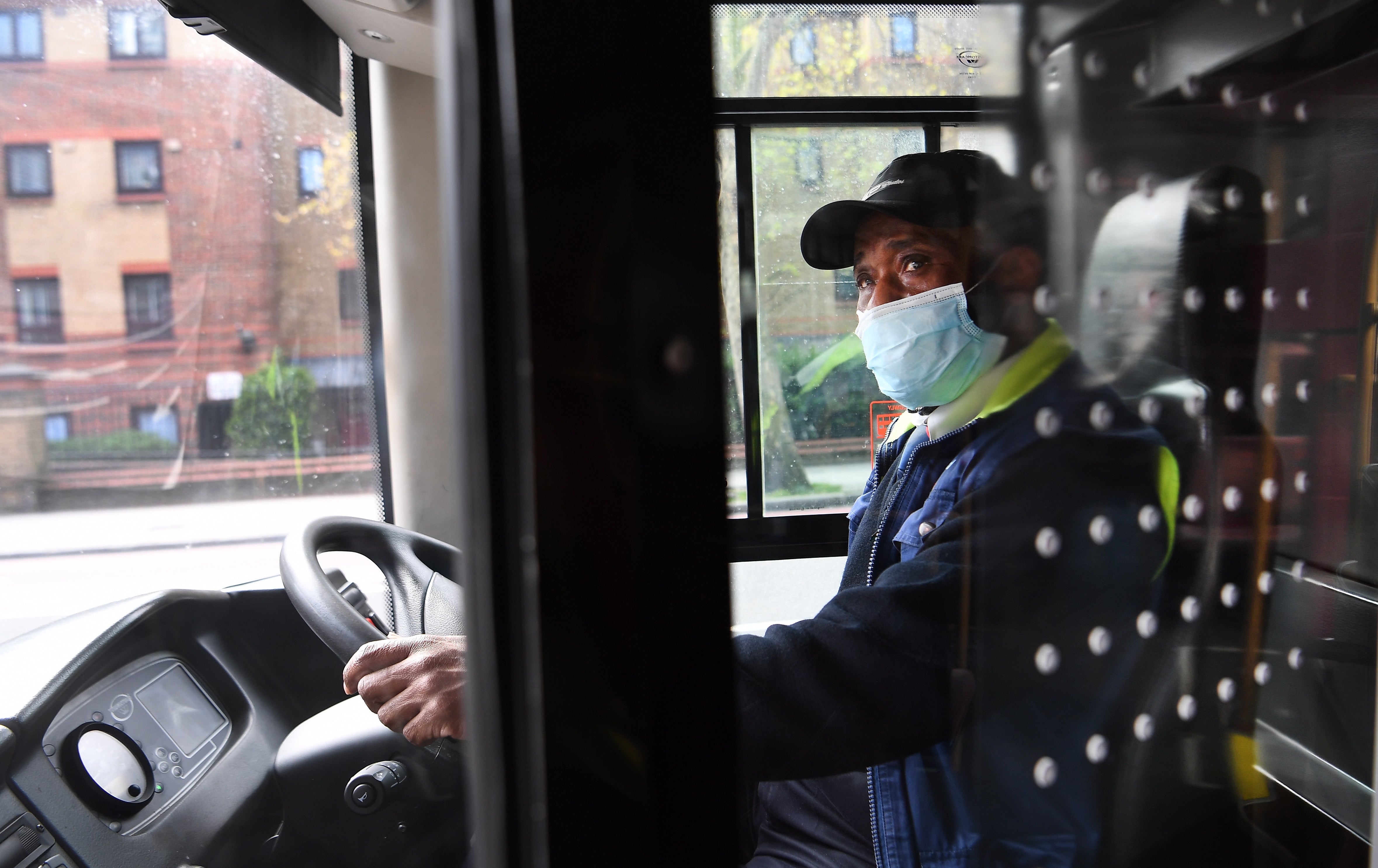Black and ethnic minority staff at greater risk of Covid exposure than white employees, union says
Health risks and lack of financial support adding to ‘hostile environment’ at work, claims the TUC. Adam Forrest reports


Black and ethnic minority staff are more likely to be exposed to the coronavirus at work than white workers – and are thus more likely to lose out on pay while self-isolating, a new study suggests.
More than one third of black and ethnic minority employees in the UK have self-isolated this year compared to only one quarter of white employees, according to a survey commissioned by the Trade Unions Congress (TUC).
Union leaders said the research added to the mounting evidence that black and ethnic minority workers are facing both greater health risks and greater financial hardship during the pandemic.
Some 50 per cent of white workers say their employer has carried out a Covid risk assessment, compared with 36 per cent of black and ethnic minority staff, according to the survey of 2,200 workers.
It also found that black and ethnic minority workers are more likely to have concerns about their health in returning to work than their white colleagues.
She added: “BME workers, and all workers, should be entitled to decent sick pay when they have to self-isolate, and to safe workplaces.”
TUC general secretary Frances O’Grady said: “BME workers are more likely to be exposed to the virus, less likely to work in Covid-secure workplaces and therefore more likely to be plunged into hardship if they have to self-isolate.”
The TUC have called for more generous and consistent support for self-isolators, describing it as a “gaping hole in the government’s Covid strategy”.
There is growing evidence that few workers have benefited from a promised one-off payment of £500 for self-isolators – with a recent investigation by The Independent finding that only a few hundred people have received the money in a string of major cities.
Patrick Roach, chairman of the TUC’s anti-racism task force – meeting for the first time on Thursday – said the lack of financial support added to the wider inequality which still in the workplace.
“There is a hostile environment for black workers today which means they are more likely to face discrimination in the workplace, to be in insecure jobs, and more likely to be dismissed from work,” he said.
In July, a study by the University College London researchers found that an earlier lockdown would “likely have saved” the lives of Transport for London (TfL) workers who died with coronavirus.
Figures showed 31 out of the 44 deaths among London transport workers at the height of the pandemic were among black or Asian members of staff.
Last month a major report published in The Lancet found that black and Asian people up to twice as likely to be infected with Covid compared to those of white ethnicities.
Dr Manish Pareek, a senior author of the paper, said many factors could be at work – including the greater likelihood of living in larger household sizes, lower socioeconomic status, and being employed in frontline roles where working from home is not an option.
Public Health England (PHE) has also suggested overcrowded housing is a factor that helps explain why black and minority ethnic communities have been so badly hit by the disease.
“Overcrowding can lead to increased Covid-19 transmission,” states PHE’s June report. “This is a much larger problem in BAME households than in white British households ... BAME households are more likely to be intergenerational.”
Earlier this week the Resolution Foundation said workers asked to self-isolate after testing positive or coming into contact with a Covid carrier should be given furlough payments worth 80 per cent of their wages, rather than being forced to rely on sick pay.
Statutory sick pay (SSP) of just £96 a week represents the lowest level of state support in any advanced economy during the pandemic – less than a quarter of typical earnings, compared to a 60 per cent average in OECD countries – the think tank found.


Join our commenting forum
Join thought-provoking conversations, follow other Independent readers and see their replies
Comments